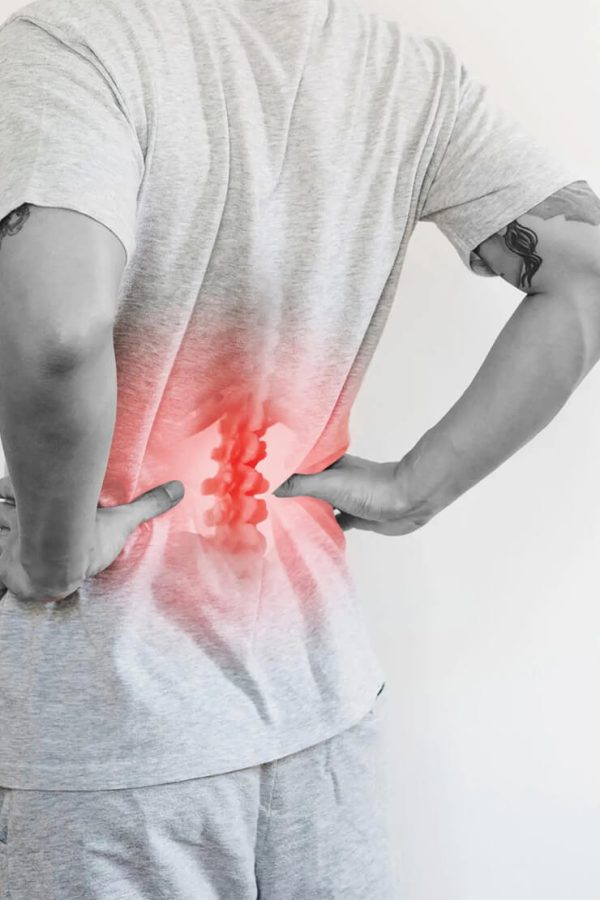Refer a Patient
iScope is currently accepting new patients. A referral from your primary care physician or specialist is required for consultations covered by your provincial plan. If you require rehabilitation services a referral is not required.
Chronic pain is chronic or long-lasting pain that lasts longer than the typical recovery period following an injury or sickness. Pain that lasts for three to six months or more is a common definition of chronic pain.
The term “chronic pain management” refers to a complete strategy used to assist people in coping with and minimizing the impacts of chronic pain. It uses a variety of methods and strategies to lessen pain intensity, increase functionality, and promote general wellbeing.
A chronic pain clinic, often called a pain management clinic, is a type of medical facility that focuses on identifying, analyzing, and treating diseases involving chronic pain. Our Mississauga pain clinic often employs a multidisciplinary strategy, bringing together a group of medical experts from several specializations to offer complete therapy to patients with chronic pain.
Our Mississauga chronic pain clinic’s main objectives are to assist patients in efficiently managing their pain, enhancing functionality, and improving their quality of life.

Chronic pain is chronic or long-lasting pain that lasts longer than the typical recovery period following an injury or sickness. Pain that lasts for three to six months or more is a common definition of chronic pain.
Contrary to acute pain, which is a fleeting sensation brought on by an illness or injury, chronic pain lasts even after the underlying cause has disappeared or healed. There are numerous potential causes, such as:
A person’s physical and mental well-being are both impacted by chronic pain, which can have a substantial negative influence on quality of life. Reduced mobility, sleep difficulties, weariness, mood swings, and trouble completing daily tasks are possible consequences. It may also exacerbate psychological issues including sadness and anxiety.
The term “chronic pain syndrome,” sometimes known as “chronic pain disorder,” refers to a condition in which a person has extensive, continuous pain over a protracted length of time, usually at least six months. It is characterized by pain that is sometimes complicated by the interaction of numerous physical, emotional, and psychological elements and may not be directly tied to an injury or other particular cause.
People who have chronic pain syndrome frequently suffer pain in several different parts of their bodies, and they may also experience other related symptoms like fatigue, sleep problems, mood swings, and a lower quality of life. The degree of the discomfort might change and can either be persistent or sporadic.
Although the precise origins of chronic pain syndrome are not always evident, it can arise from a number of reasons, such as:
Iscope Mississauga is located on the 5th floor of the Queensway Professional Centre building. You will find the Queensway Professional Centre directly across from Trillium Health Centre (former Mississauga Hospital).
Monday: 9:00am – 5:00pm
Tuesday: 9:00am – 5:00pm
Wednesday: 9:00am – 5:00pm
Thursday: 9:00am – 5:00pm
Friday: 9:00am – 5:00pm
iScope is currently accepting new patients. A referral from your primary care physician or specialist is required for consultations covered by your provincial plan. If you require rehabilitation services a referral is not required.
Suite 830 – 475 West Georgia St Vancouver, BC V6B 4M9
P: 1-888-550-5508
F: 604-900-7676
Coming Soon Suite 301 – 1111 Lonsdale Ave North Vancouver, BC V7M 2H4
P: 1-888-550-5508
F: 604-900-7676
Suite 301 – 3185 Willingdon Green Burnaby, BC V5G 4P3
P: 1-888-550-5508
F: 604-900-7676
Opening soon at 3670 63 Ave NE , Suite 260
Calgary, AB
P: 1-888-550-5508
Suite 500 – 89 Queensway West Mississauga, ON L5B 2V2
P: 1-888-550-5508
F: 416-900-7006
Coming Soon Virtual Clinic Now Open
P: 1-888-550-5508
© Copyright 2023 Iscope Concussion and Pain Clinics. All Rights Reserved